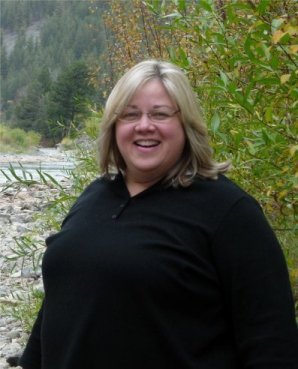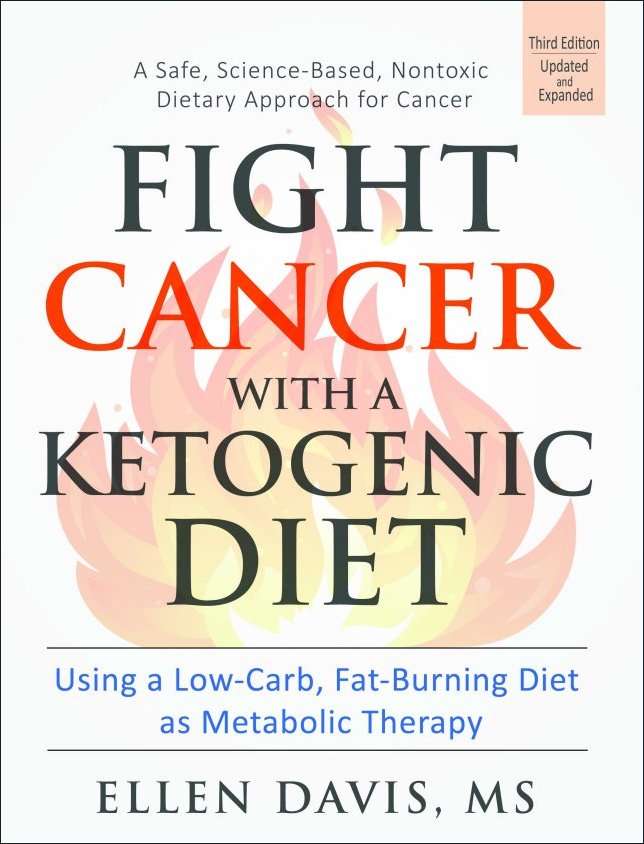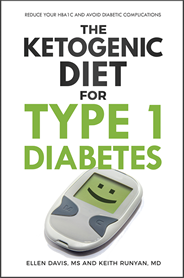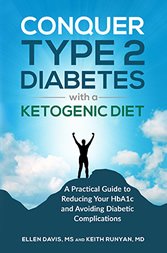My Story: How I Lost 77 Pounds
My story begins many years ago. I started my health improvement and weight loss journey in 2008 after a series of health scares forced me to look at my bad diet and non-existent exercise habits.
My blood pressure and fasting blood sugar were both elevated, and I started having issues with blurred vision and pain in my feet. That really scared me, as my mother had been diabetic before she died at the age of 63, and I did not want to end up dying young and in pain as she had.
So I started paying attention to how I felt after I ate. Armed with my observations, I began to change my diet.
At first, I cut out the obvious processed junk foods, and started choosing real foods instead. Out went the boxed and canned stuff, and I started eating fresh meats and vegetables instead. Although my diet was much lower in carbs at this point, and I had removed many of the problematic foods, I still got my chocolate fix in every week, and I was eating bread or corn chips occasionally.
Six months into these changes, I felt so much better, I decided to write a website and share the information I had learned about what constituted real food and the difference it can make in your health.
I called the website Healthy Eating Politics, since what I had learned about “healthy eating” was the direct opposite of what the federal government and mainstream medicine was saying.
I discovered that the low fat, whole grain, high carb diet being pushed by the USDA was making people sick, and that cholesterol and saturated fat were NOT evil foods. The lie that cholesterol and saturated fat cause heart disease was doing a lot of damage to the average American's health, and I wanted to let people know there was a different philosophy about what constituted healthy eating.
During that time, I was still making changes to my eating habits, and learning what foods made me feel good, and what foods didn't. I found that the less bread and sugar I ate, the better I felt.
Since I was feeling so much better eating a lower carb diet, I decided to really cut my carb intake and work on losing my extra weight. That’s when I discovered the scourge of insulin resistance.
I had a raging case of it, brought on by years of eating a diet high in carby junk foods.
My insulin levels were so high, I had severe reactive hypoglycemia for the first 6 weeks of cutting my carb intake. I had to reduce my carb intake in stages. I started with about 80 carbs a day, then a few weeks later, went to 60 carbs a day, and kept dropping my weekly intake until I was able to lower my blood sugar and insulin enough that I didn't have any more low blood sugar episodes. (It comes back though, if I slip and let my carb intake get too high).
When I finally got down to where I could stay at 20 carbs a day without a low blood sugar reaction, it seemed to work for taking off the extra weight I'd put on. It did an even better job of fixing my metabolic syndrome related health issues.
The first month on a ketogenic level diet, I stayed at 20 carbs per day, and then worked up from there to about 30 a day and then up to less than 50 carbs a day.
I lost 25 pounds and felt even better, even though I wasn't exercising.
But at that point, the weight loss stopped, even though I was sticking to an average of 50 carbs a day.
This didn't make sense to me. I was following a low carb plan, and I even dropped my calorie intake to 1500 a day in an attempt to keep the weight loss going. But it didn’t work. I struggled with a weight loss yo-yo for months. I'd lose 5 pounds, and gain two back.
It was very discouraging, as you can imagine.
But, since my health had improved 1000 percent eating the low carb way, and I had lost some weight, I stayed with it. Months went by and I kept tweaking my diet.
At some point, I realized that having any kind of grain made me feel terrible, so I cut all grain out of my diet. I stopped eating any food with wheat in it, and I scoured my vitamins and other hidden sources of gluten and removed those as well.
I didn’t lose any weight, but feeling good went to a whole new level. My energy sky rocketed, my skin looked great, and I felt super healthy, but I was still heavier than I wanted to be.
There were days when I felt like that no matter what I did, I’d never get the extra weight off. I had completely changed my eating habits for the better, but I was still too heavy. It was frustrating to say the least.
The worst part was that I had all this nutrition knowledge in my head, and I couldn’t figure out why I still had a weight problem.
In hind-site, I see now that I struggled for the following reasons:
- I didn't want to admit that I had an unusual and very low carb tolerance level. I know now that I am so sensitive to carbohydrates, that even sticking to a very low 50 carbs per day kept me from breaking the weight loss plateau. I mean, you can hit 50 carbs a day with the limited choices of about 3 servings of green vegetables, a few eggs, some cheese and a little greek yogurt. (I envy people who can eat 100 carbs a day and still lose weight).
- I also didn't want to admit that calories counted, at least for me. Yes, I know that I'm only 5'3" and that my job is sedentary. But when you don’t want to “see” something, you can really come up with some nifty rationalizations. My reasoning followed the brilliant line of "other low carbers didn't have to count calories, darnit".
- I didn’t realize how important the right type of exercise was for increasing insulin sensitivity, so I had no regular exercise program.
- I wasn't ready to commit to a carb intake less than 20 grams a day for an indefinite period. I knew my choices would be pretty limited on that low of a carb intake, and I would have to really cut back on my dark chocolate habit. I'd already completely and permanently changed most of my eating habits, and I was annoyed that I'd have to make even more changes. Bottom line was I didn’t want it bad enough. Feeling super healthy was enough of a reward at that point.
Over the next year, I continued to study nutritional science and write my websites, experimenting and changing my thoughts on what worked for me and what didn't.
I just knew that if I kept going, one day I would discover the key to my weight issues. Until then, I'd just tough it out, and keep my focus on continuing to improve my health.
Around this time, I caught the flu, and developed a really serious case of chest congestion. I hadn't been that sick in a long time, and it scared me into figuring out why. My thought was "wait a second, I eat really well, why am I so sick?"
So I did some research, and found out Vitamin D was essential for respiratory health, so I had my vitamin D levels checked. My levels were super low - a measly 27. Normal is between 50-100. Not surprising since I lived in Wyoming, where it is Winter 10 months out of the year, but not good.
Having read how beneficial it is for so many body systems, I started a program to get my vitamin D levels up. I started taking 5000 IU a day and then checked it again several months later. It was better, but still only at 31. So I upped my daily intake to 10,000 IU. I felt even better at this point. Last time I had it checked, my vitamin D level was at 61, and I rarely get colds any more. So, one more puzzle piece fell into place.
After about a year of dealing with what was becoming the marathon weight loss plateau, I decided to have a fasting insulin test done. The result was eye opening.
My insulin levels were still sky high (27 on a normal scale of 3-19 uIU/ml) - even after several years of following a low carb diet. I realized then that my metabolism was really broken, and it wouldn't be fixed overnight.
My goal at this point switched to a focus on working hard to increase my insulin sensitivity. I started a high intensity interval training program after reading Doug McGuff's Body by Science book.
Before then, I hadn’t realized how important the right type of exercise was for increasing insulin sensitivity. My attitude, born of past experience, was that exercise did nothing for weight loss. I had exercised religiously for years and ended up gaining weight.
Of course, at the time, I was doing lots of moderately paced “aerobic” exercise because I thought it was the right way to burn fat. I didn’t know then that a high intensity interval training (HIIT) program was a better choice for an exercise program to help me reverse my broken metabolism.
So I started a regular exercise program which included lifting very heavy weights and intervals of walking and sprinting on a treadmill once a week. It helped, and I gained valuable muscle mass and strength.
I Finally Break My Weight Loss Plateau
At the end of 2011, I finally put it all together. I made a conscious decision to commit to a true "less-than-20-carbs-a-day" ketogenic diet, stay with my high intensity exercise program, AND cut my calories. And low and behold, it worked.
I've lost another 60 pounds. I still have more to go, but I'm happy with what I've done so far.


When I think about the fact that I've lost a total of 77 pounds since I began in 2008, I get a little misty. It's been such a long, difficult journey, but I take solace in the thought that permanently changing 40 years of bad eating habits is not an easy thing to do.
That kind of transformation involves restructuring entire thought patterns, reversing years of destructive behavior, and learning new ways of being. It's a huge investment of time and energy.
So what flipped that final switch for me?
Maybe it was the fact that I had planned a trip to Costa Rica for my 50th birthday. I wanted to be able to really enjoy that trip, and at my heavier weight, I just would have been miserable.
In other words, I think I succeeded this time because I had a larger goal, and I also found, to my surprise, that having a deadline to work toward was motivating.
I also set my plan up so that once a week, I was accountable to someone who recorded my weight loss and inch loss. This accountability has also been key for me.
Finally, I track everything - calories and grams of carb, protein and fat. Tracking everything is not strictly necessary, but I feel it gives me a measure of control, and keeps me honest.
I even track my fasting blood sugar, as I feel it gives me a measure of what my insulin is doing. My fasting blood sugar has dropped from an average of 95, to an average of 86. That's a good sign in my book.
An even better sign is the result of the fasting insulin test results I recently had done. My fasting insulin has dropped from that sky-high level of 27 to 3.9 uIU/ml. When I got those results, I was so happy and relieved, I started crying. That result tells me that my hard work is paying off, and that maybe my metabolism wasn't so broken that I couldn't fix it.
I’m not yet at my final goal, but I now feel very strongly that I WILL get there. I already feel so much more confidence in myself, and I’m pretty happy that I’m finally moving in the direction I’ve been wanting to go for so long.
A Few Thoughts
In my struggles to feel better and lose weight, I've become convinced that good health and normal weight are the result of controlling blood sugar and insulin. Anything you can do to increase your insulin sensitivity is going to help.
So that's my story. I hope it helps you in your own journey. If you are struggling with weight issues, please know that you can and will succeed, if you just stick with it, and make the changes necessary.
It may seem hard at first, but you will adapt to the new way of eating, and it will become habit after a while. If I can do it, so can you.
For those who are interested in what I eat, see this post over at Dr. Attia's site. I totally agree with his "goals and level of insulin resistance" ideas. I also got the short end of the stick for IR genes, and discovered independently that the same foods also work for me in terms of health and well-being.
I don't exercise as much as he does, so I can't eat as many fat calories as he does, if I want to lose weight. But the food choices are the same.
Note that the type of fat you eat is key. You won't be able to stick to the diet if you limit saturated fat. Eating only polyunsaturated fats like vegetable oil will quickly make you feel awful, and they are extremely unhealthy and inflammatory. I eat mostly butter, cream cheese, fatty meats like pulled pork, lots of eggs, cheese and just a little mayonnaise and sometimes olive oil.
You also need a source of Omega 3 and Omega 6 fats, since these essential fats have to come from food. For the Omega 3 fats, make sure you eat foods like tuna, shrimp or salmon 2-3 times a week, or take a little fish oil every other day or so. A little mayo will cover the Omega 6 need.
I love coconut oil, but I limit it because it's a "medium chain" fat, and the body can't store it, so it has to be burned for fuel immediately. When I'm in weight loss mode, I want my body to burn my stored fat, not the fat I'm eating.
I'll also add that consistency is key. If you slide into a cheat day, it's going to take you 3-5 days to get back into burning fat.
Also, I take a few more natural supplements than Dr. Attia does. If you choose to eat a lower calorie diet, don't skip supplements. You'll need them to make up for the lack of food volume.
One more thing: I like to cook, which makes feeding myself much easier. I've posted many of my low carb recipes, and I also put together some low carb cooking tips as well. Feel free to use them.
Updates..
2013...
Well, it's been eight months since I returned from my Costa Rica trip. During that time, I've managed to regain 20 pounds, a few pounds at a time. Disappointing, and annoying, but there it is. It's been frustrating but I've learned some things as well.
The lower calorie diet that I adopted to lose the weight worked well, but it did have the expected effect of slowing my metabolism. When I returned to eating my normal calories levels, I gained back some of the lost weight. However, since I've stayed with the low carb, high fat, ketogenic diet, that effect has finally stabilized, and I'm now maintaining my weight at normal calorie intake. It took about the same time I was on the lower calorie diet (5 months) to regain my normal metabolic rate.
I'm determined to re-lose the extra weight, and then lose even more of the excess pounds, so I'll keep trying different strategies, and hopefully find one that has a less detrimental effect on my metabolic rate.
2017: Five Years Out from Costa Rica...
It's been a rough couple of years. Life has punched me the face lately, and I haven't been as focused on weight loss so much. I'm still eating well and feeling good, and I'm happy and healthy for the most part. For now, I'm just trying to enjoy each day as it comes.
I've gotten less critical of myself and my weight issues over time. Maybe that's an age thing (I turned 55 this year) or because I'm happy with the work I've done to help others, or maybe I'm just tired of the struggle. I guess some would say I've accepted defeat, but I've become keenly aware of the fact that life can be cut short in the blink of an eye. So I've stepped back, and I'm taking time to enjoy my days, not work so hard, and spend more time having fun instead of worrying about my weight. It feels good.
All of my books are available in electronic PDF, and now in paperback on Amazon!
 |
 |
 |
|
Buy paperbook on Buy paperback on Amazon Buy the e-Book via Paypal |
Buy paperback on Buy paperback on Amazon Buy the e-Book via Paypal |
Buy paperback on Buy paperback on Amazon Buy the e-Book via PayPal |